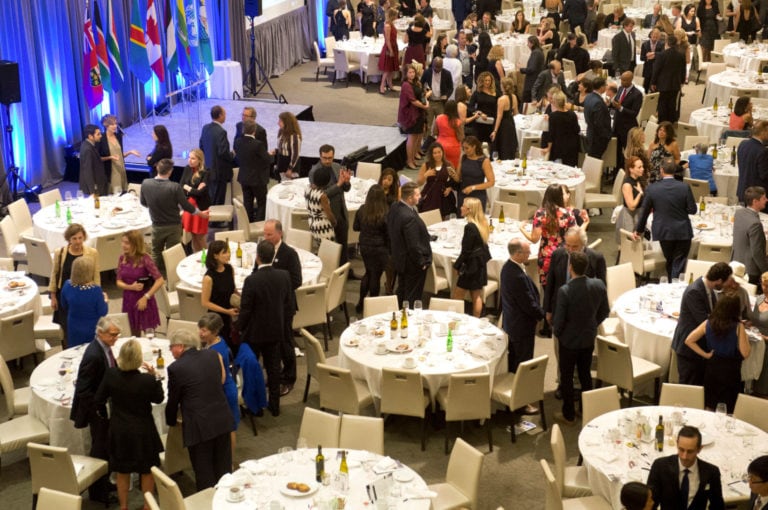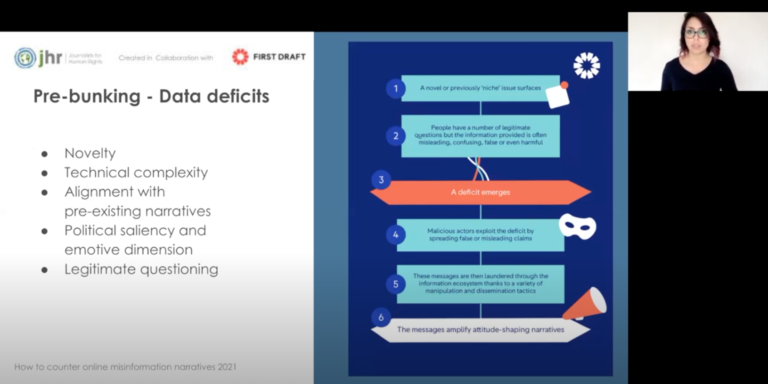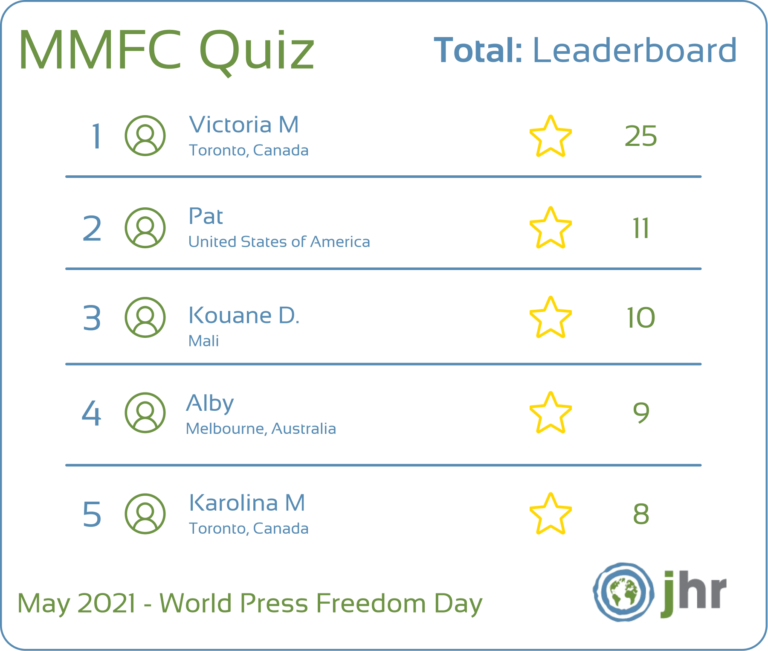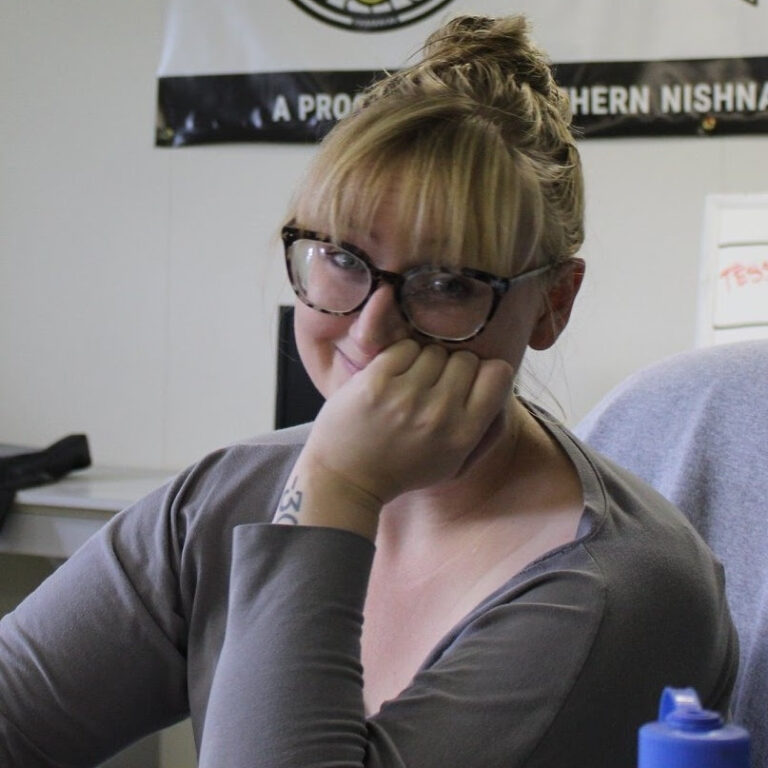May 15th, 2021
This week’s highlights
- Save the date: Night4Rights 2021 slated for October 20!
- JHR announces Canadian program: The Misinformation Project & Call for Proposals
- Test your human rights knowledge with our MMFC Quiz!
- Information Saves Lives: Stories about the impact of COVID-19 from The Gambia, Ghana and South Africa
- Meet our new staff, Sarah Ladik and Mehreen Hasan
Join us for an inspiring evening in celebration of human rights journalism around the world!
Proceeds support JHR’s programs at home and abroad.

The Night for Rights will take place at the Brickworks Pavilion, 6pm-8pm, on October 20, 2021.
This year, mindful of potential public health concerns, we’re putting on an extended cocktail party in an outdoor setting. We will have both on- and offline speakers and entertainment and attendees can choose to attend either on- or offline.
Tickets are $500 or $5000 for a group of 10. To purchase tickets, please contact [email protected].
JHR announces Canadian program: The Misinformation Project

A screenshot from a 2021 training session delivered by JHR in partnership with First Draft
JHR is pleased to announce The Misinformation Project, an extension of the Combating Misinformation Project carried out in 2020.
This time, JHR partnered with First Draft News, a global leader in misinformation research and training, to design a program that provides journalists with cutting-edge digital investigation tools to identify and report on misinformation narratives. To date, 16 Canadian journalists, including expert Craig Silverman, have trained 300 journalists and journalism students across the country.
The Misinformation Project is supported by the McConnell Foundation, the Trottier Family Foundation and the Rossy Family Foundation.
View the program site here.
JHR announces Call for Proposals
As part of the Misinformation Project, JHR is launching a call for proposals to support Canadian news organizations’ coverage of online misinformation during the Covid-19 pandemic.
The bursaries will provide successful applicants with a one time grant to produce original and timely reporting on stories related to online misinformation.
Canadian news organizations, journalism professionals and journalism students studying in Canada who have received JHR’s training and are interested in investigating the issues, events and tools covered in the training sessions should apply.
Click here for more information.
Test your human rights knowledge
with our MMFC Quiz!

Top scorers of Week 2 of the quiz
After another week of exciting competition, we are proud to announce the top scorers of JHR’s MMFC quiz! We’re excited to see new participants join us in Week 2, and as points increase in successive quizzes, there’s plenty of time to make it to the top of our leaderboard!The month-long quiz series, launched on World Press Freedom Day, tests participants’ knowledge of human rights challenges and successes in the 12 host countries of the Mobilizing Media for COVID-19 project, while sharing some inspiring insights and stories of change emerging from MMFC and earlier JHR projects.
Next week, the quiz will be focused on Tanzania, Uganda and South Africa. You can get a head start on the quiz here!
Information Saves Lives: Stories about the Impact of COVID-19 from The Gambia, Ghana and South Africa
As part of JHR’s Mobilizing Media to Fight COVID-19 (MMFC) project, over 200 journalists across 12 countries are publishing stories with accurate public health information and about the impact of COVID-19 on human rights, especially the rights of women and girls.
From Gambia:
COVID-19 restrictions leave fish vendors penniless
Article by Pa Modou Cham, published in The Point on April 30, 2021

Excerpts below:
“Since the inception of the coronavirus pandemic, Gambian women, particularly fish vendors within Latrikunda Sabiji market who wake up every morning to Tanji Fish Landing Site, (a coastal town) in the West Coast Region (WRC) are grappling with less income.
Speaking to The Point, Mama Sanneh, resident of Latrikunda Sabiji and a fish vendor at Latrikunda Market, explained that the coronavirus has caused them several difficulties since it was recorded in the country. According to her, the pandemic collapsed their businesses, saying they had been working fine before covid-19.
“There is a big gap in our daily earnings. Since the pronouncement of the first case of coronavirus, our commodities and other stuff become no longer marketable. This is as a result of few customers and government restrictions on movement of people and closure of non-essential businesses. The basic commodities have risen rapidly, be it fish, onion or any other food item,” Sanneh added.”
Read the full story here.
From Ghana:

A COVID-19 survivor took to news outlets in Ghana to warn against stigmatization and tell people, “COVID-19 is real, I want everyone to be careful”, while authorities call the public to adhere to all safety protocols’. Watch the report here.
From South Africa:

This week Spotlight focused on the impact of COVID-19 on the right to health. South Africa is rolling out its national COVID-19 vaccine programme, which aims to vaccinate 40 million South Africans. However, there is still a high number of dis/misinformation circulating about the vaccine.
Participating in the episode were Nosiphiwo Mbopa, a journalist with Ngwane FM from Mthatha in the Eastern Cape who is also part of the JHR’s MMFC program, and Reabetsoe Noge, Acting Council Manager for LifeLine Johannesburg, who give insights about the impact of COVID-19 on mental health on local communities, especially children.
Watch the latest episode of Spotlight here.
The above stories are part of the Mobilizing Media to Fight COVID-19 project funded by

Staff Profile: Sarah Ladik and Mehreen Hasan
JHR’s team has been growing these past months, we would like to introduce our new team members here.
Sarah Ladik

Job title: Consultant
Sarah Ladik is a settler and former print journalist with experience in community newsrooms across what is now called Canada. She is passionate about ethical storytelling and always looking to learn more.
What motivated you to work for JHR?
I came into the Indigenous Reporters Program as a trainer in 2019 and have really just been looking to get more involved ever since. The formative years of my career were spent in the Northwest Territories on Dene and Inuvialuit land. It was very clear to me early on that I was part of a wider problem in the media there, being an outsider brought in to tell stories about peoples whose histories I neither knew nor understood. Working in the IRP was an opportunity to put my labour where my mouth is.
What do you hope to achieve with JHR?
My former role as an editor was often about thinking through what voices were present in the publications I worked for, both in terms of journalists and sources. The more varied and informed those voices were, the better I felt about the product. I hope my work with JHR moving forward will allow me to keep supporting new voices, as well as those who have been ignored for far too long, in a way that makes a difference to more than one publication at a time.
Mehreen Hasan

Job title: Communications & Operations Assistant
After enjoying a hybrid communications career in which she juggled full-time journalism with marketing and ghostwriting gigs, Mehreen is excited to join Journalists for Human Rights to tell the inspiring stories of change emerging from its vital programs in Canada and around the world.
What motivated you to work for JHR?
I moved to Toronto a couple of years ago, and took the relocation as an opportunity for reinvention. I was looking to use my journalism experience outside of the newsroom, and working in the nonprofit space seemed like natural progression. When the opportunity to join JHR came up, I jumped at it because it felt like the perfect fit.
Your support allows us to continue our innovative work around the world!




